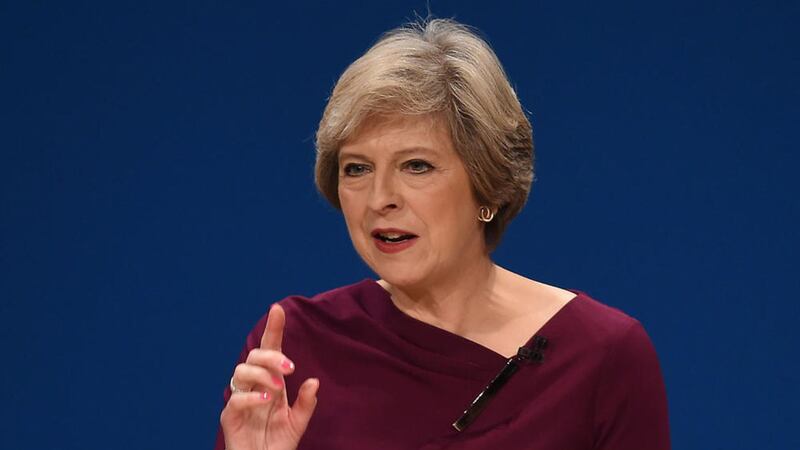WHILE the long-term impact of Brexit will be economic, its immediate consequence in both Britain and Ireland is predominantly political.
The government in London is re-enacting the Battle of Britain, Dublin's politicians have re-discovered the Irish border and the Chinese may soon be helping to run Stormont. Welcome to the pre-Brexit world of "What on earth do we do now?"
So where will this wonderful confusion of political reactions bring us? Will it influence the style and content of Brexit and what will it all mean for Ireland's most treasured national institution, the border?
The short answer is that for the first time in almost a century the same event is influencing political behaviour on both islands - but the reaction is significantly different. Theresa May displays the politics of pragmatism. The Dáil is opting for the politics of panic and Stormont, as usual, is going in opposite political directions at the same time.
The political picture is clearest in Britain, where Labour now trails the Conservatives by 17 percentage points. Part of that has nothing to do with Brexit. It stems more from Labour's understandable rebellion against the established order and its less understandable desire to destroy itself in the process.
Theresa May now occupies the middle ground formerly occupied by New Labour and she is using it to build a new party image and a new political agenda.
The Conservatives, she says, are now the party of workers, public servants and the NHS. She has abandoned Thatcherism, arguing that, "There is more to life than individualism and self-interest".
Instead, she has returned to the conservatism of the 1950s, when housing minister Harold MacMillan (later prime minister) argued that government was a force for good. (He proved it by building 300,000 houses annually.)
Mrs May has cleverly tried to justify Britain's anticipated independence externally by developing a new vision of society internally. It remains to be seen how much of that vision she will deliver, but she has headed off Remain supporters by weaving Brexit into the fabric of a proposed new society.
She has returned to World War II, with her pledge to beat the Germans (and others) abroad, so that a fairer society can be built at home. At the same time she has weakened UKIP with her strong anti-immigration stance. Her pragmatism should ensure a Conservative government in London for some time.
In Dublin things are different. Politicians are fighting to defend the newly-discovered Irish border. (That's the pre-Brexit border, in case you are confused. It is now patriotic to depict the border as home-made to a traditional Irish recipe, which is much superior to this new foreign border which the British are trying to introduce.)
So while the Dáil approves a Brexit-proofed budget (even though no one knows what Brexit will mean) the Irish government appears willing to accommodate Britain's anti-immigration policy by having British checkpoints at Irish ports and airports. (Nothing new there: the 1921 Treaty allowed Britain to retain control of three Irish ports.)
Some who gain entry might stay in Ireland to enhance its skills base. Not the first time Ireland could accommodate Britain's immigration dilemma. When 13,000 Protestant refugees arrived in London from the Lower German Palatinate in 1709, Britain sent 3,000 of them to Ireland. They successfully integrated, as evidenced by the traditional Irish air, The Palatine's Daughter. The village of Palatine won the Carlow county football championship this year. (Three centuries from now, maybe the village of Brexit will win a county championship somewhere.)
Meanwhile Stormont is opting for a soft border - with China. The Chinese ambassador in London says that Brexit offers "the possibility of exploring a higher level of financial, trade and investment arrangements" with the UK.
The Chinese are buying access to new technologies by taking over businesses in the UK and Europe, in areas such as food, energy and transport. (They already own Volvo, Pirelli and Pizza Express.)
Infrastructure minister, Chris Hazzard, was in China this week hoping to attract investment in "local transport projects" here. The Chinese might be interested (at a price) if only someone could tell them whether Stormont hopes to stay in, or leave, the EU.
Critics are right to suggest that Theresa May has no plan for Brexit. But she has a plan for gaining a commanding political position to handle the Brexit negotiations. That puts her well ahead of most Irish politicians, who appear to believe that the height of political sophistication is standing on the border with a replica wooden customs post.
I wonder what the Chinese will make of it all.









